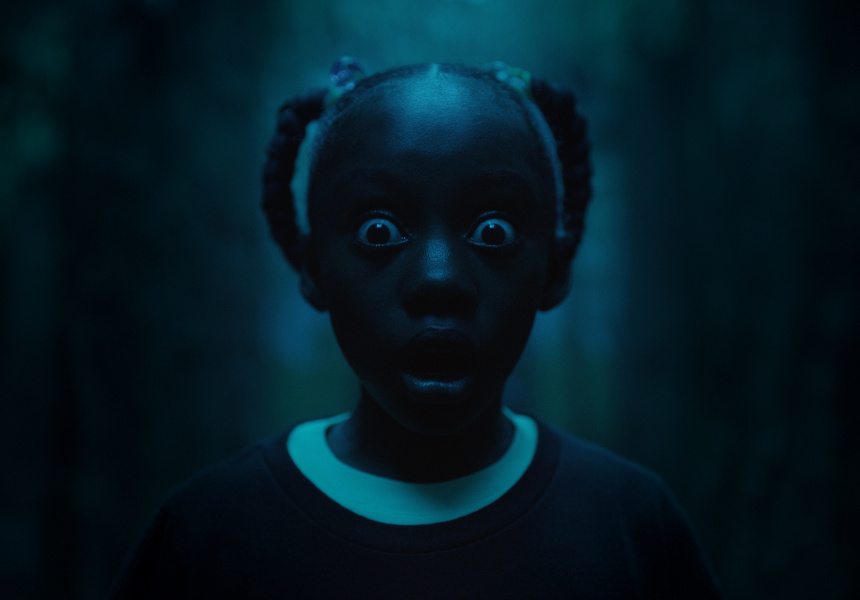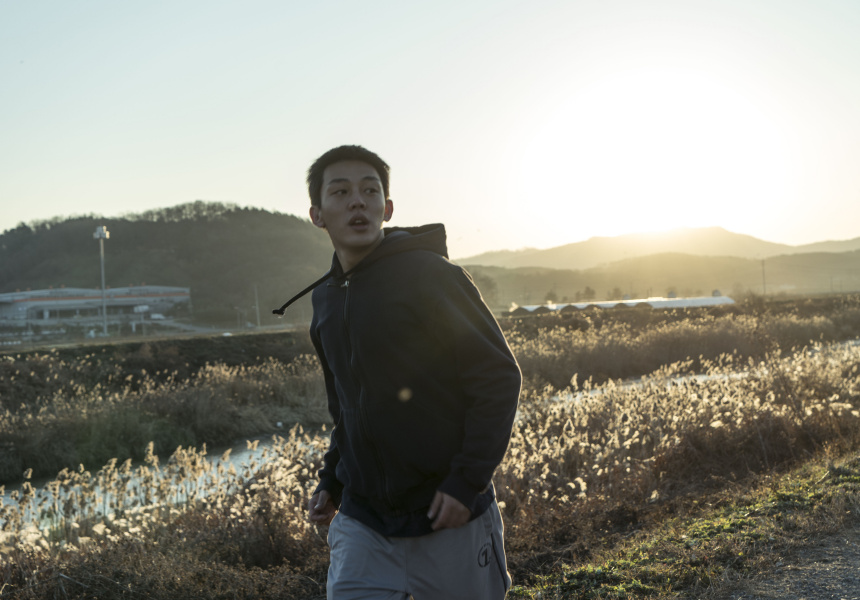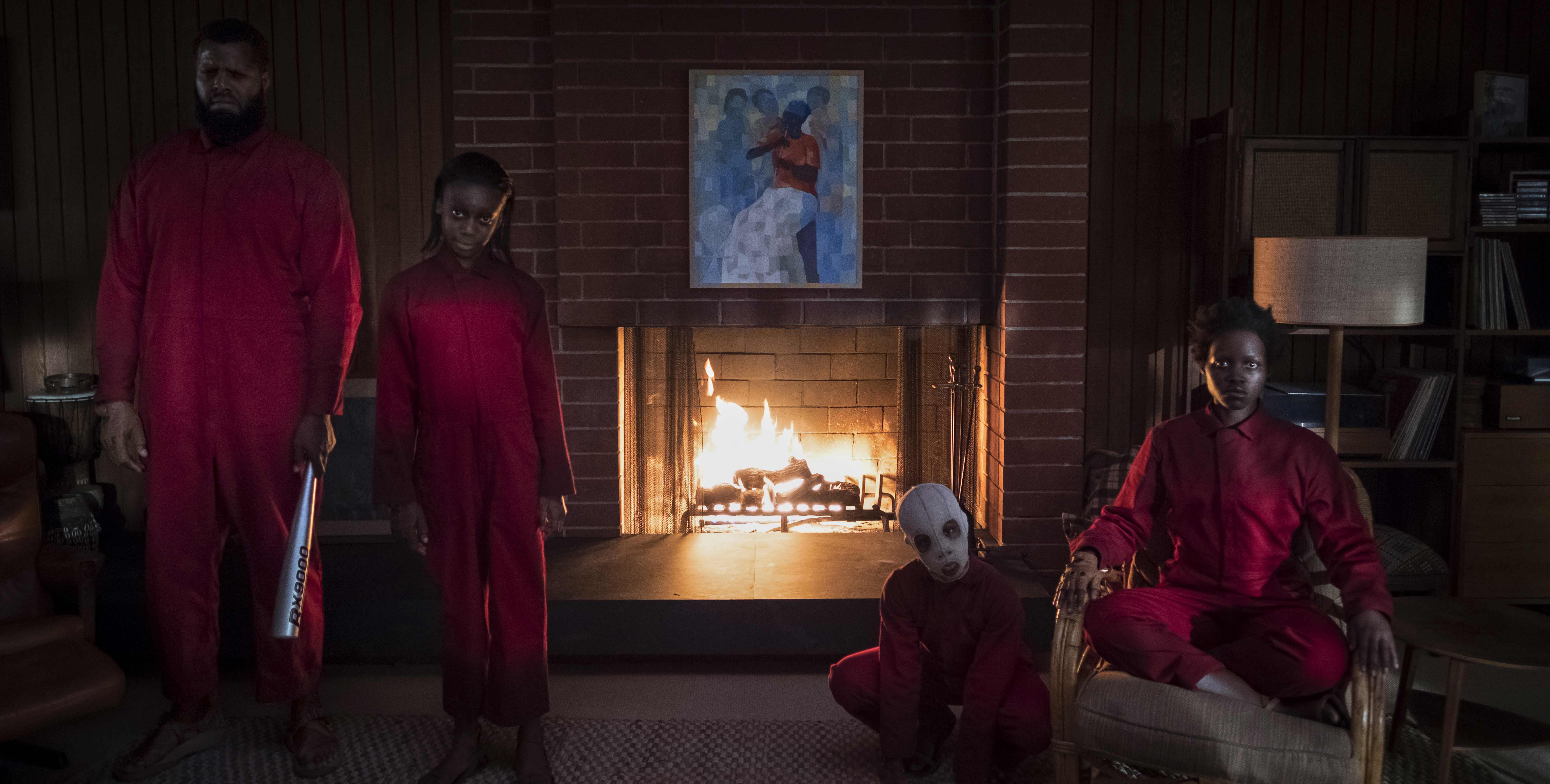Us
When Adelaide (Lupita Nyong'o) was a kid, she had a terrifying and surreal encounter with a doppelgänger. Now a mother of two, she’s on a family holiday with her husband Gabe (Jordan Peele) and kids Zora and Jason (Shahadi Wright Joseph and Evan Alex) and upsettingly close to the site of her childhood trauma. And her doppelgänger isn’t done with her.
It’s fitting that Us director Jordan Peele is producing and presenting the new version of The Twilight Zone. Us would make a perfect episode: a weird, high-concept happening changes the life of an ordinary person, accompanied by plenty of scary bits, memorably creepy imagery, and an underlying social commentary. But this isn’t a chin-stroking, thinking-person’s horror film – it’s still scary as hell (and laugh out loud funny at times). And while the treatment of class and wealth is as subtle as a hammer to the skull, this is the kind of blunt force needed to reach a mainstream audience. It doesn’t hang together as well as Peele’s last film, the excellent Get Out, but it’s rewarding to see a major film taking a few risks and playing with big ideas.
Us is playing at most Palace, Event and Hoyts Cinemas, Reading Rhodes, and Dendy Newtown.
Watch the trailer
Stay in the know with our free newsletter. The latest restaurants, must-see exhibitions, style trends, travel spots and more – curated by those who know.
SIGN UPBurning
In Paju, South Korea, aspiring writer and reluctant farmhand Jongsu (Yoo Ah-in) reconnects with a schoolmate, the eccentric Haemi (Jeon Jong-seo). He quickly falls in love with her, but before long she’s dating the richer, better-looking and more charismatic Ben (Steven Yeun). Jongso becomes the third wheel. But then one of the wheels disappears.
Loosely based on a short story by Japanese writer Haruki Murakami, Burning wrong-foots its audience early on. What seems at first to be a love triangle between a rich man, a poor man and a manic pixie dream girl becomes a tense psychological drama. There’s so much rich detail, from Jongsu’s flawed character to the glimpses of the divisions in contemporary Korea. Jongsu’s farm is on the North Korean border, from which he hears the North’s propaganda broadcast every day. And the Gatsby-esque Ben lives in luxury while Haemi’s apartment is about the size of his bathroom. Burning never lets up with dualities and ambiguities, lies and truths, and doesn’t give us easy answers. Film of the month for me.
Burning is screening at Cinema Nova and Palace Cinemas Kino, Como, Balwyn and Brighton Bay.
Watch the trailer.
mid90s
In an effort to escape his loving mum (Katherine Waterston) and surly older brother (a wound-up, violent Lucas Hedges), 13-year-old Stevie (Sunny Suljic) falls in with a gang of skaters with names like Fuckshit and Fourth Grade. With their help he learns to skate, and learns the ins and outs of burgeoning toxic masculinity.
I struggled to work out why mid90s needed to be set in the mid-’90s. Is it a story that can only be told in the golden age of skate culture? Has teenage masculinity changed? Or is it just a nostalgia kick for men of a certain age? While I think it’s mostly the latter, that doesn’t get in the way of a strong coming-of-age film from debut director Jonah Hill. Rechristened as “Sunburn”, Suljic plays an angel-faced kid torn between his new role model Ray (Na-Kel Smith) and the more destructive instincts of other members of his new family. This is a frank portrayal of young men huddled in a pack and slowly tearing each other apart.
While Hill has insisted that his film steers clear of “nostalgia porn”, the soundtrack covers everything from 2Pac, Wu-Tang Clan and Pharcyde to Pixies, Nirvana and Seal’s Kiss From A Rose. For those of us right on the target age, the mid-’90s nostalgia is real, and that’s fine by me.
mid90s is screening at Cinema Nova from April 4.
Watch the trailer.
The Man Who Killed Don Quixote
Advertising director Toby (Adam Driver) is in Spain shooting an ad based on Miguel de Cervantes’s novel Don Quixote, sleeping with his boss’s wife and generally being a “creative genius” bad boy when his past catches up with him. His long-forgotten student film, also based on Quixote, was shot just over the hill. He soon discovers that his former lead actor (Jonathan Pryce) has lost his mind, and believes himself to be Quixote. The pair goes off on a quixotic journey of their own.
The Man Who Killed Don Quixote is the Chinese Democracy of cinema. It took director Terry Gilliam (Monty Python, Brazil, Fear and Loathing in Las Vegas) 30 years – and multiple attempts at shooting it – to get this one out of the gate, with illness, natural disasters, money troubles and lawsuits standing in the way. Does it live up to the three-decade drumroll? Well, nothing could. But the good news is that while Gilliam himself has been left in the past a bit, this film bears none of the scars of its long gestation. It's slightly dated, because that's Gilliam through and through: rampant silliness, broad comedy, self-aware cleverness, and all the messiness you’d expect from that concoction. That it’s a film about the hellish compromise of filmmaking is appropriate. The frequent stumbles and uneven bits are part of the charm ¬– it’s messy but it’s always fun.
The Man Who Killed Don Quixote opens on April 11 at Cinema Nova.
Watch the trailer.
High Life
The near future. Deep space. Ex-con Monte (Robert Pattinson) is alone on a doomed space vessel but for his infant child. Flashback: a group of convicts is offered pardons for participating in a deep-space mission to harness the energy of a black hole. Meanwhile, they’re subjected to a series of fertility experiments. Paranoia, claustrophobia and libidinousness ensued. Now, Monte is left holding the baby.
This ambiguous, sumptuous and violent science-fiction film offers a far more nihilistic version of the future than any sci-fi of recent years: hurtling through deep space on a shoebox-shaped spaceship that looks like it could collapse at any moment, a bunch of convicts are left to try to fuck and kill one another. Veteran French director Claire Denis has gone more Solaris than Interstellar. It’s visually gorgeous, from design (the spaceship’s garden makes for some beautiful set pieces) to the cinematography, but the grim reality of incarceration and certain death is always just beneath the surface. The audience is frequently as in the dark as the excellent cast (Pattinson, Andre Benjamin, Mia Goth and Juliette Binoche) is, right to the end.
High Life is screening at the Astor, and Palace Cinemas Kino, Como, Westgarth and Balwyn.
Watch the trailer.



